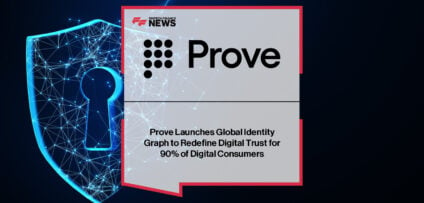Breaking News

6 Technologies Driving Change in the Financial Sector
Financial technology – or “fintech” – is driving swift growth in the financial sector, with the fintech market expected to reach a value of over $880 billion by 2030 (up from $257 billion in 2022), with an anticipated CAGR of 17% between 2023 and 2030. McKinsey & Company reports that the global banking industry’s spending on technology has been seeing 9% annual increases, outpacing revenue growth (which has held steady at 4%). In 2023, total technology spending in banking reached $650 billion.
As financial institutions strive to remain competitive, fintech is no longer perceived as a set of supplemental tools but as imperative to how institutions improve efficiencies, scale their operations, and manage customer relationships. In short, fintech is fundamentally changing how financial systems operate – from automation to achieve cost savings to AI-driven analytics to improve customer experience.
Tools such as the blockchain, artificial intelligence, virtual private networks (VPNs), and digital payment systems have made it possible for financial institutions to adapt to new security, scalability, and compliance challenges. Here is a closer look at six particular technologies that are reshaping finance.
1. Blockchain
The blockchain is altering how the financial industry manages transactions and stores data because it makes it possible to keep a decentralized and secure ledger. Financial activities such as international payments and transfers, trade finance, and the execution of smart contracts are increasingly handled via the blockchain. This increases the security, efficiency, and reliability of transactions and creates cost savings by eliminating third-party intermediaries.
The blockchain has also changed the speed of transaction processing. Platforms such as Ripple and Stellar, which provide blockchain protocols and apps, have reduced the settlement of cross-border transactions from days to mere seconds, making seamless global trade possible.
The blockchain’s transparency also ensures all parties access the same data. It can verify that data, which creates more trust around cross-border transactions and eliminates much of the time and cost of handling disputes.
2. AI-Powered Analytics
Artificial Intelligence (AI) permits real-time data analysis and access to predictive data once thought impossible. AI’s predictive power is proving especially useful in credit scoring, fraud detection, and the optimization of financial portfolios. AI-driven tools such as IBM Watson and SAS Analytics have changed how financial institutions assess creditworthiness, swiftly analyzing more data points to arrive at more informed and nuanced decisions, improving fair lending, and minimizing the risk of default.
AI can also find anomalies and inconsistencies in transaction patterns that might elude a human agent (or otherwise take much longer to identify), making it possible to spot fraud quicker and build trust between financial institutions and their partners and clients.
3. Digital Payments
From mobile wallets to contactless payments, digital payment tech makes it possible to establish instant transactions. This has improved both convenience and accessibility, as tools such as PayPal, Square, and Stripe have made it possible to provide underserved communities and markets with points of entry into a growing digital economy.
Providing instantaneous and reliable digital payments has allowed small businesses to open e-commerce shops, retain their customer base, and maintain and grow revenue. Because these platforms experience high scalability, they enable successful small businesses to grow swiftly, as they can take on higher volumes of transactions without loss of performance or reliability.
4. Virtual Private Networks
Even as customers and clients become more familiar with general “VPN” terms, financial institutions, where sensitive personal and financial data is an asset that must be protected and managed with care, increasingly rely on Virtual Private Networks (VPNs) as an essential security measure. VPNs make data breaches less likely by masking IP addresses and encrypting data transfer over the Internet.
VPNs like IPVanish offer encrypted Internet connections to help keep financial data secure from cyberattacks and identity theft while providing unrestricted access to global markets. This has proven desirable for financial institutions that need to operate across many jurisdictions. Financial institutions using a VPN can provide secure communications across offices located in various geographical regions in ways that comply with GDPR and CCPA.
5. Fraud Detection
With cybersecurity becoming increasingly complex, more than just VPN connections are needed in the evolving financial sector. Dedicated fraud detection platforms rely on machine learning to swiftly assess a high volume of transactions, identifying inconsistencies and alerting the institution to possible fraudulent transactions.
Tools such as ThreatMetrix and NICE Actimize analyze real-time transactions, flagging unexpected alterations in spending behavior or account access from unexpected parties or regions. This allows financial institutions to detect fraud more proactively, minimizing losses and building trust with their clients, giving institutions a competitive advantage.
6. Robotic Process Automation
Several major banks, including Deutsche Bank and Citibank, now use Robotic Process Automation (RPA) to automate repetitive tasks such as data entry, compliance checking, processing loan applications, client onboarding, and KYC workflows. This has allowed the banks to speed up the processing of new clients while lowering costs and reducing the risks of compliance penalties due to human error. RPA is scalable, allowing for cost efficiencies when financial institutions must devote resources to workloads that fluctuate significantly.
The Future of Fintech
With both advances in financial technologies and investment in the fintech sector expected to accelerate, integrating today’s tools – the blockchain, AI, VPNs, digital payment platforms, fraud detection software, and RPA – is likely just the beginning.
Financial institutions must adopt and adapt these tools to their processes to stay ahead in operational efficiency and data security, optimize the customer experience, and build customer loyalty in an increasingly competitive sector. As the industry continues to face new challenges in an increasingly digital world, today’s early adopters are likely to be tomorrow’s leaders in the world of finance.
- Latin America’s Payments Evolution is Unlocking Digital Commerce for Millions Read more
- Boku Deepens LATAM Commitment, Readies Merchants for Brazil’s Digital Payments Revolution via Pix Read more
- MAPFRE is the Largest Multinational Insurance Company in Latin America Read more
- African Development Bank Group’s Office of Integrity and Anti-Corruption Partners with Special Investigations Unit to Combat Financial Crime Read more
- The 4th Edition of the Africa Fintech Forum to Shape the Future of Finance in Kenya on October 15 Read more















